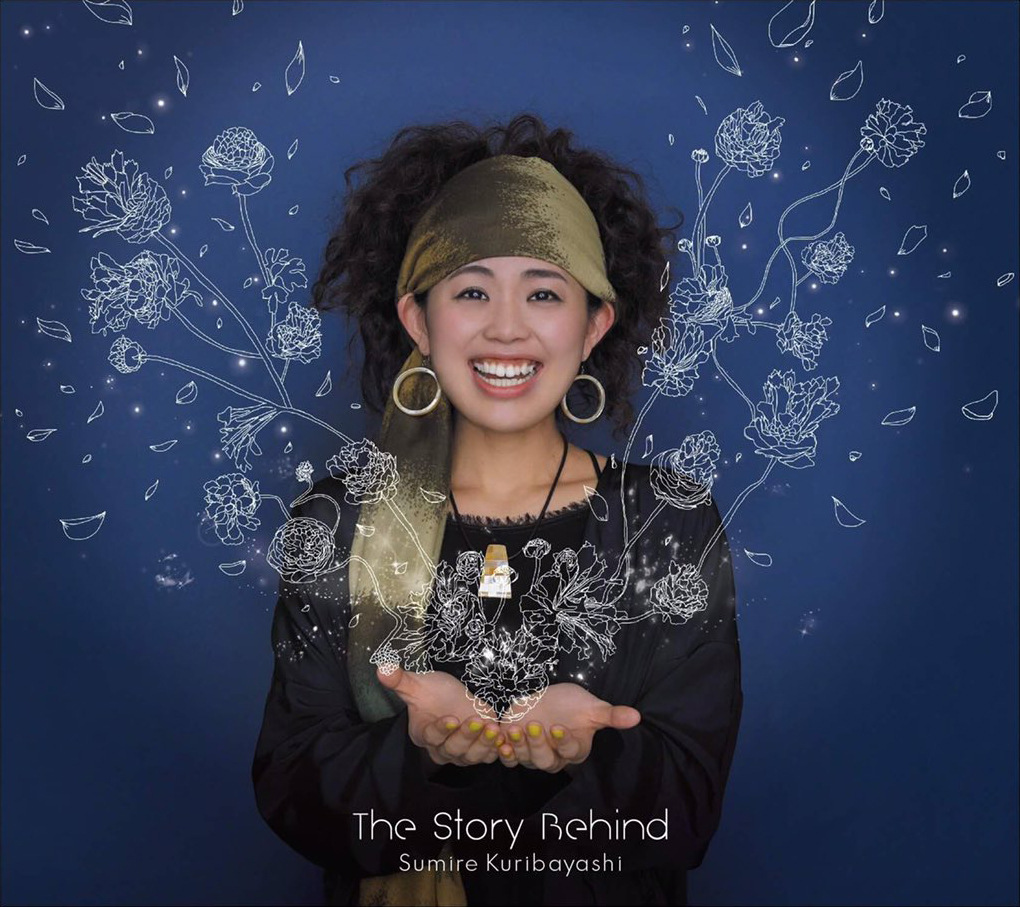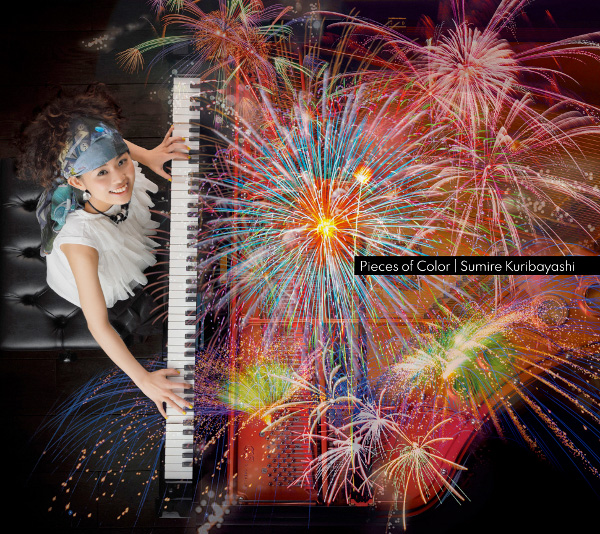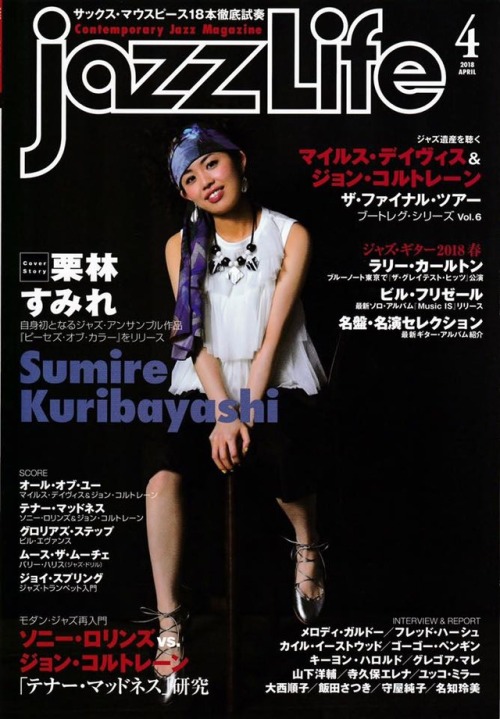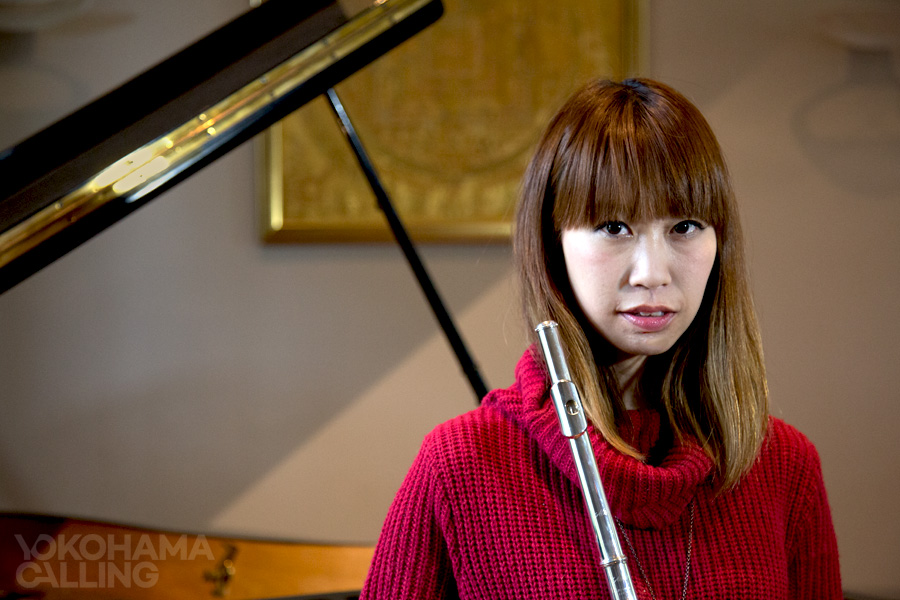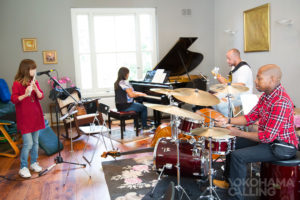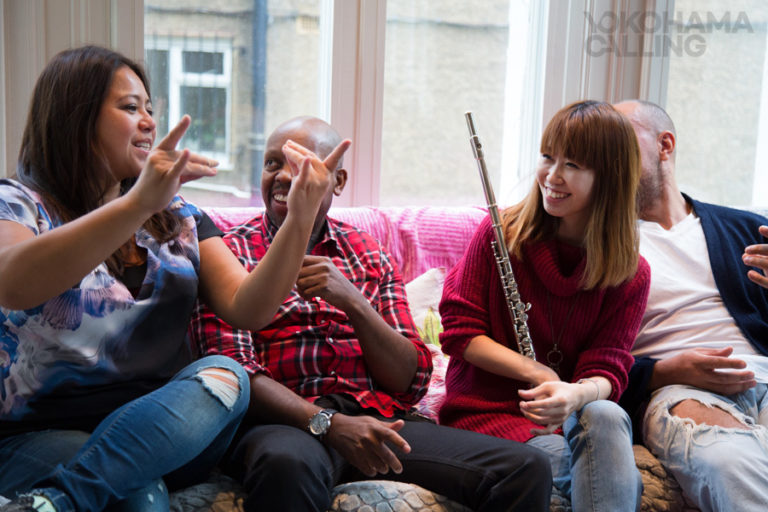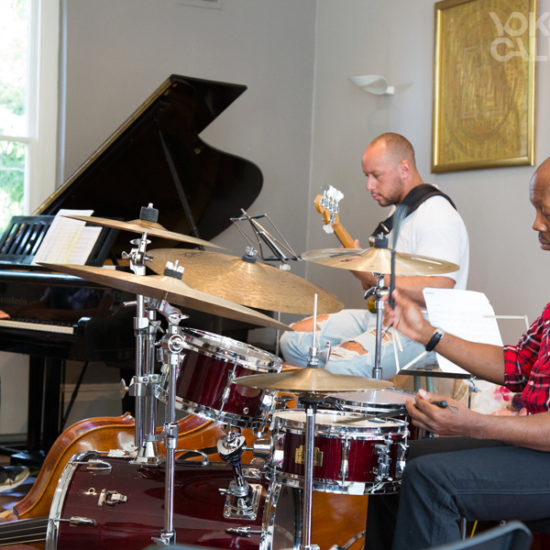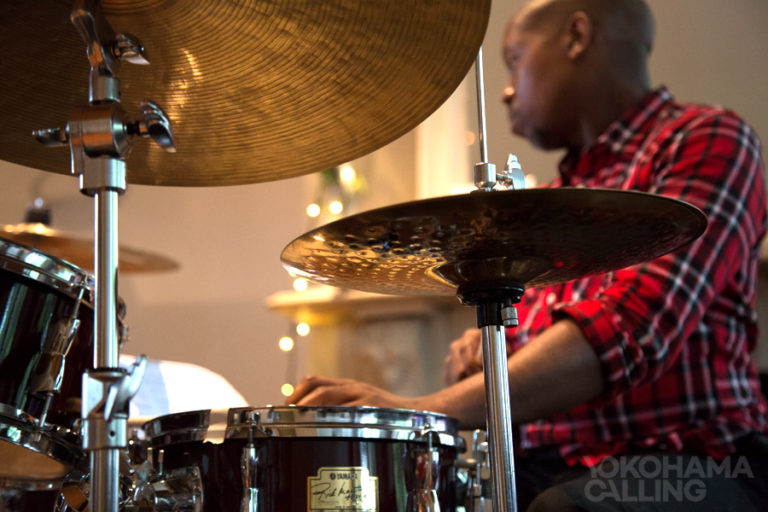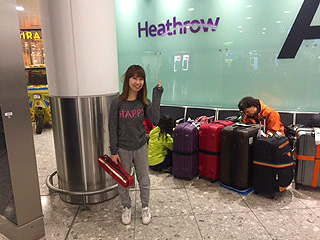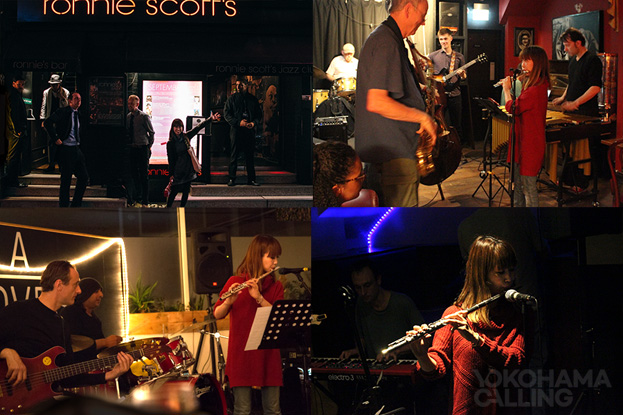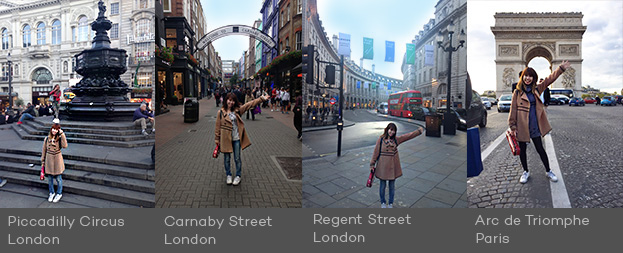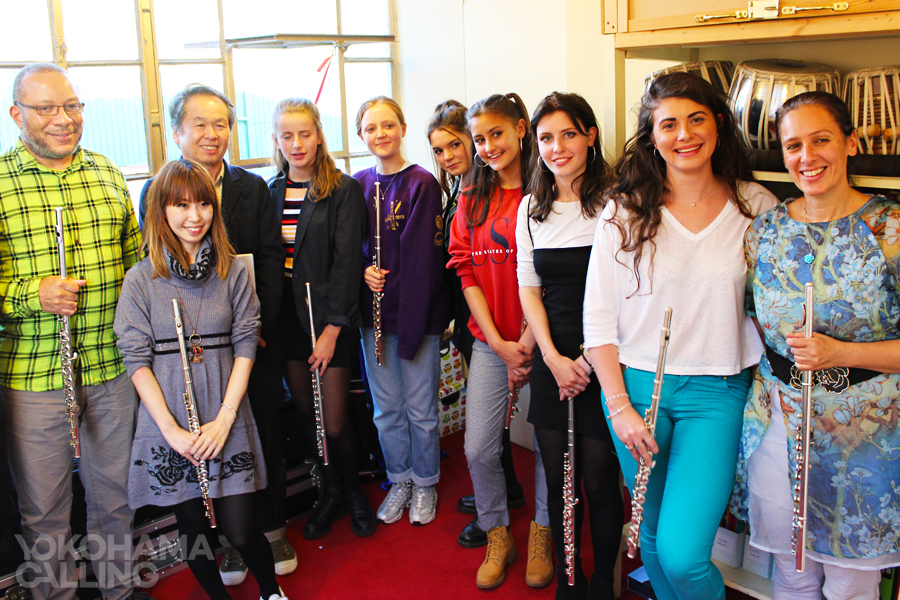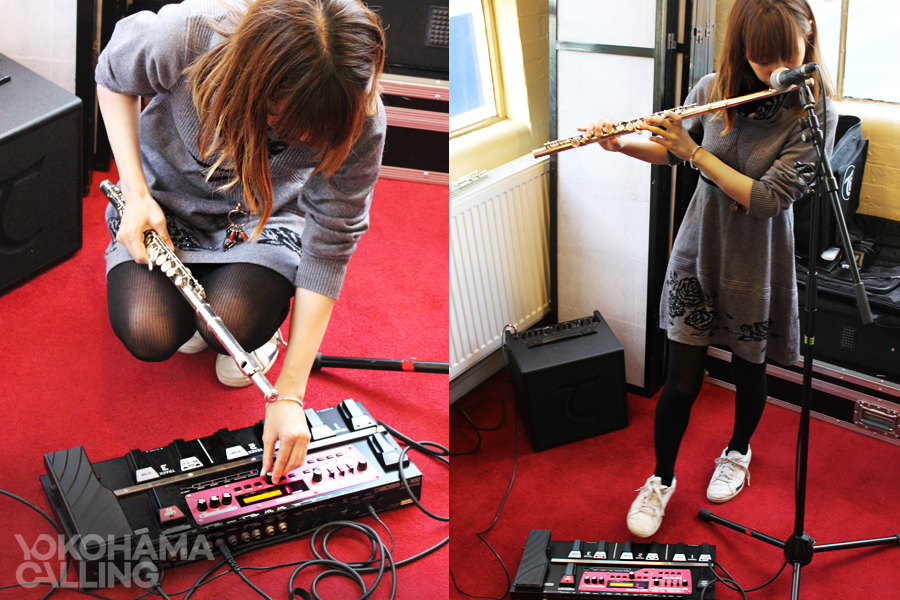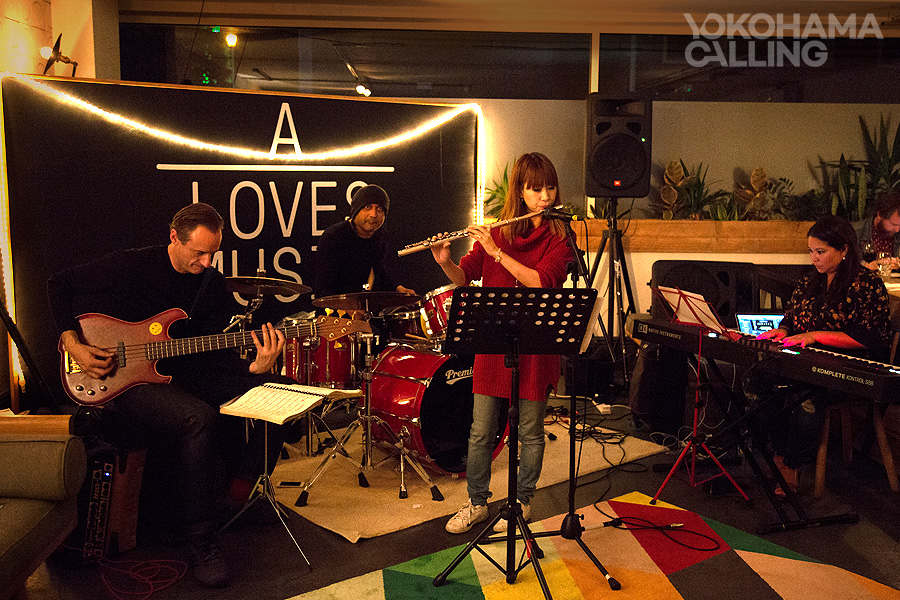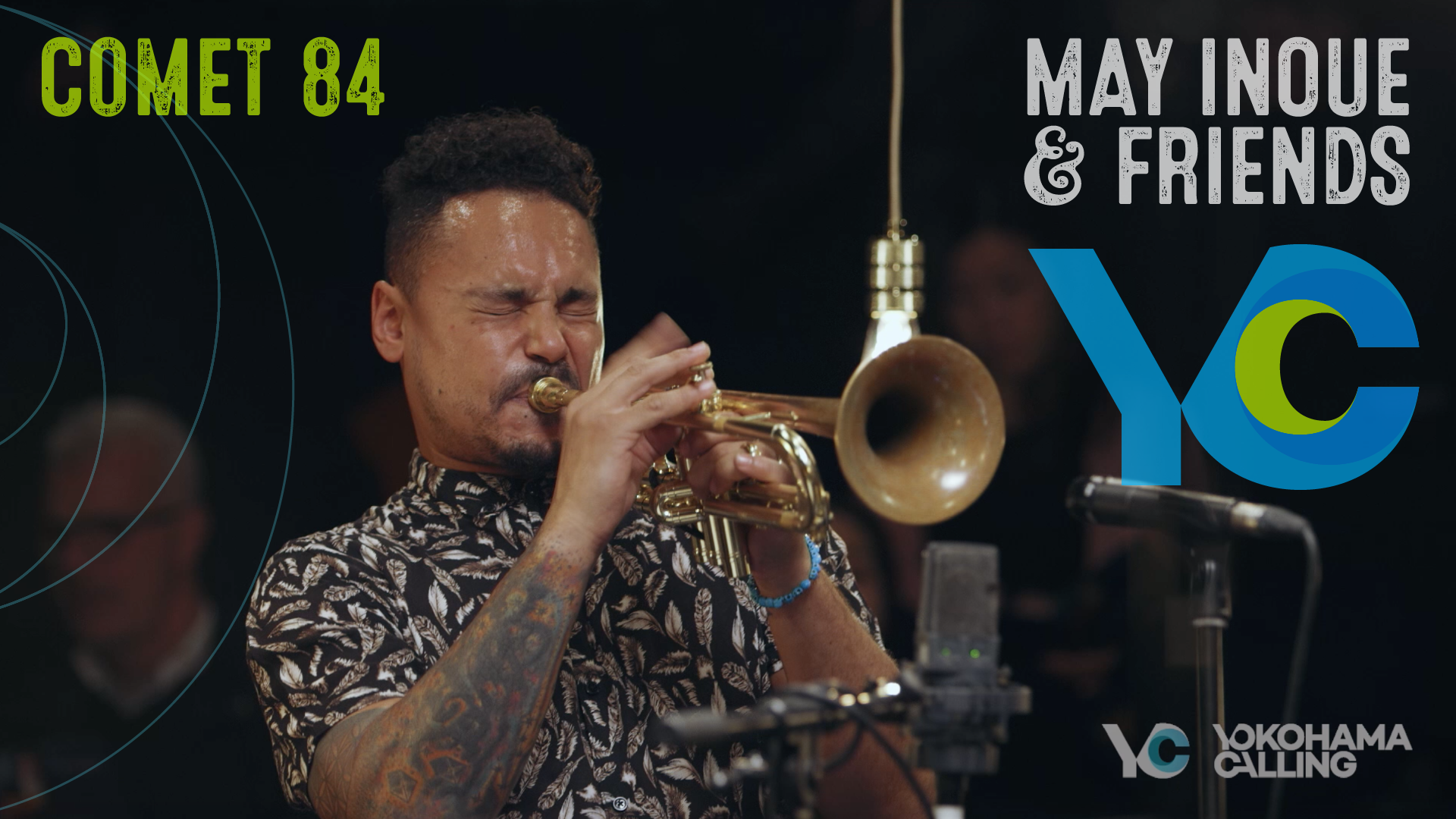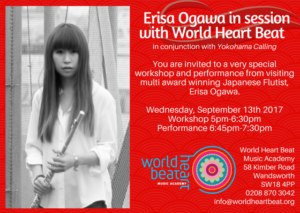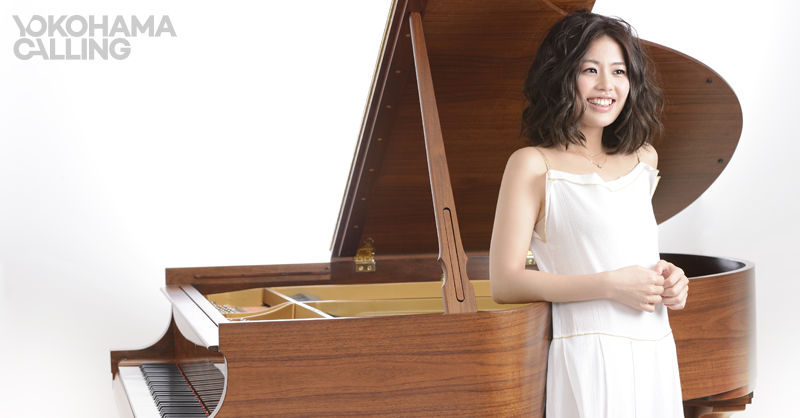
Tell us why you started playing the piano.
My father is a musician (Hideaki Kuribayashi, Koto player), so my everyday life was full of great music since I was a child – I think that was good environment looking back those days. I said to my dad when I was 5 years old if I can learn Koto then he said you can, but don’t cry even if you are having difficult time when you practice. But I did (laughing), then I switch to piano because there are few lovely friends who enjoy learning the piano. I really adore pianos as instruments especially, my parents kept saying we can’t afford buying piano, my adoration to piano got stronger and stronger. One day I had a chance to play the beautiful grand piano at school. That was a crucial moment for me to get into seriously. Finally my parents bought an electric piano for me but they somewhat did not allow me to learn the piano under any tutors. They said you just play the piano as you like.
You did not learn piano properly from teachers – that’s quite unusual.
Yes, therefore playing the piano was just play for me for long time. Yet I still have been keeping my adoration for grand pianos. So I went to music school when I finished secondary school because I can play grand piano every day! At that school I have learnt classical piano for three years fully. As you know, people who become a professional classical pianist would have learnt piano from good teachers from a much younger age like 3 years old. Me wasn’t. So I did not have an idea to become a classical music pianist, because of this, my teacher let me play pianos quite freely. I play my favourite composer’s music such as Debussy, Bach and Ravel then brush up my expressive technique.
Why did you go to Jazz field?
Playing the piano is so natural for me, and this was the only way of living life for me. I also had a natural feeling to play the piano in front of audience – I have chosen a restaurant with a piano for part time work when I was a student at 18, then played the piano when I was off  I met a jazz pianist at the time that I have to decide future job. When I listened to it’s music, I spontaneously got great interest in harmony. “What’s the hell is this??” I have already got my interests in harmonies when I learn classical music too. That is one of the reasons why I attracted possibilities of jazz music. I went to a music college to learn bebop jazz for 4 years.
I met a jazz pianist at the time that I have to decide future job. When I listened to it’s music, I spontaneously got great interest in harmony. “What’s the hell is this??” I have already got my interests in harmonies when I learn classical music too. That is one of the reasons why I attracted possibilities of jazz music. I went to a music college to learn bebop jazz for 4 years.
How did you feel about jazz after learning classical music.
That was difficult. First of all, the way of approach is very different. In classical way, you may need to try to understand intentions of those composers then express it with beautiful sounds that evoke visual scene. But in jazz, you will play with other musicians – you got bass, drums – you really can’t hear your piano sound (laughing). When I listened to old jazz records, sometimes you’ve noticed piano is untuned half tone or hear some roaring sounds of man. I was a bit confounded to be honest when I started. It was totally different from classical music. I have learnt mainly bebop at school, therefore I finally started listening to my favourite musicians such as Bill Evans, Keith Jarrett or recent remarkable musicians after I graduated. Then I gradually understand and got more into jazz music, finally I become more understanding of old record sources.
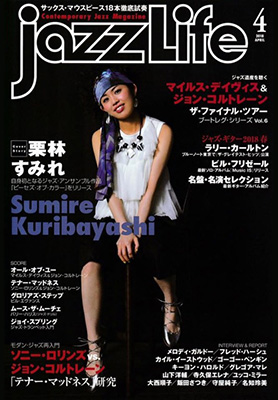 What made you thrill about playing jazz?
What made you thrill about playing jazz?
I found that playing with other musicians is the most profound aspect of jazz. I also am learning life through relationships or communications with other people, it’s like I experience epitome of life in every sessions. You can create jazz from scratch but you must have responsibilities. I really enjoy playing and creating music with other people. That is the reason why I really got into playing jazz.
In classical music, I used to play the piano visualising imagery like “a drop of water rippling on the surface of water” but in jazz improvisation, this approach is not suitable as you really focus on sounds. Music improvisation is created from the situation that musicians are dedicating and focusing on it 100%. But creating music for film is other story.
You compose music too. Do you think your own music will be changed in relationship with other co-musicians?
Yes I think so. Some musicians try to play my music by understanding my intentions and some people try to destroy it first then reconstruct new things. Sometimes they will complete music under my instructions but musicians I play with now are the people who want to see new sceneries every time we play. Therefore, we create only one-off sound every time we play in harmonies with audience, weather, venues etc. Or, we choose music to match with the day of concert. Interesting music always created accidentally, not by expected smooth situation. I accept other musician’s way, then respond to it so that we can always be very creative. Accident is always welcome, that’s the best part of jazz.
You make duo with Hideaki Kanazawa now, who has been really playing an important role in Japanese jazz industry.
I got to know him through acquaintance three year ago. When I play with him for the first time, I moved and got tears in my eyes because it was so beautiful. It was warm sound from deep love which I have ever listened to before. I really loved his music and he appreciate my music too, then we started duo. Last year, we played together 81 times in duo and 100 times in trio. We are almost family  From those days, we produce an album called “Duo”. Things I do with Hideaki now, is almost the ideal music that I have been thinking I’d love to do for a long time. It’s like my compilation of my work so far.
From those days, we produce an album called “Duo”. Things I do with Hideaki now, is almost the ideal music that I have been thinking I’d love to do for a long time. It’s like my compilation of my work so far.
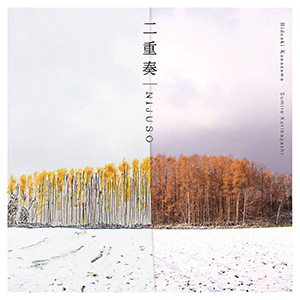
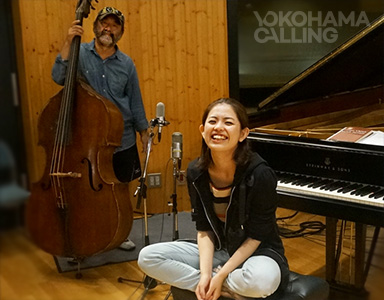
You have produced two albums in groups.
I have created “the Story Behind” with my inclination of writing letters to audience. It’s quiet pieces describing everyday life feeling. For “Pieces Of Color”, the concept is colourful combination of numbers and musicians. The themes are nature, climates, and humanity. Sounds like beautiful film music created by 11 musicians from Japan and Australia.
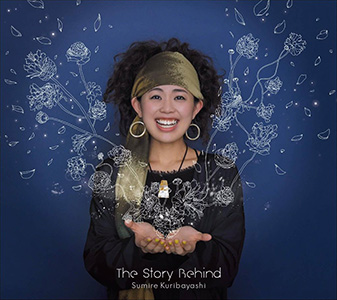
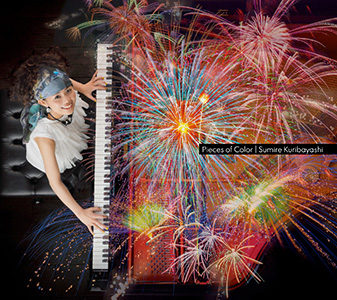
What is your music roots or who influenced you?
I mentioned Debussy, Bach & Ravel from classic and I love Bill Evans and Keith Jarrett. From Japan, I have been greatly influenced by Masabumi Kikuchi. As the same generation, I adore Shai Maestro. He adapts contemporary feeling then try to express his own interpretation of the world with his own technique. Apart from those people, if I am asked “who influenced me the most?” that’s my father.
How have you been influenced by Hideaki Kuribayashi?
His music is always around me since I was a little girl. The music imprinted in my subconscious mind. It still has strong voice to me, very evocative. His music is based on Japanese traditional music but he always adapts his own approach and arrangement. I was so lucky to be brought up with his music and have been absorbing that high quality creation naturally. As a Japanese, his music has quality of elegance / grace / style. That is the sounds that I would like to create too. That is my ideal sound. I sometimes noticed and am amazed when I found similar elements that my father have been taking very great care with, is actually the same elements that I am taking care of in my music.
Jazz was born in western world, but its spirit is all about free expression based on responsibilities. Jazz is a genre which allowed to express yourself honestly. Musicians can brush up their own way of expressions from their own background. I truly adore it and I would love to do the same myself. My dad is saying “I will be retired soon” but in the future I would love to do collaboration with my dad in any form, not necessarily playing together.
Please give your message to the UK audience.
Sound grows in its land. Many Japanese people study in overseas music schools but my sound has been nurtured and developed in Japan. I really look forward to playing with great local musicians and how we can create our own music together. I also look forward to listening to how you feel when you listen to our music as music is collaboration with audience too. This is the first time to visit London for me. See you there!
Interview by Mayu Ekuni
This interview with Sumire Kuribayashi is available in Japanese here.

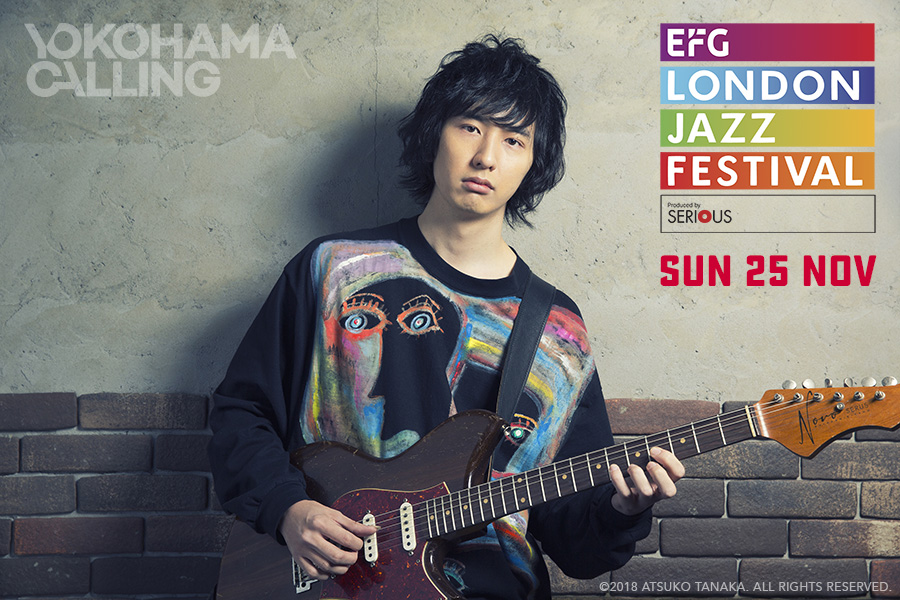

 I met a jazz pianist at the time that I have to decide future job. When I listened to it’s music, I spontaneously got great interest in harmony. “What’s the hell is this??” I have already got my interests in harmonies when I learn classical music too. That is one of the reasons why I attracted possibilities of jazz music. I went to a music college to learn bebop jazz for 4 years.
I met a jazz pianist at the time that I have to decide future job. When I listened to it’s music, I spontaneously got great interest in harmony. “What’s the hell is this??” I have already got my interests in harmonies when I learn classical music too. That is one of the reasons why I attracted possibilities of jazz music. I went to a music college to learn bebop jazz for 4 years. What made you thrill about playing jazz?
What made you thrill about playing jazz?



